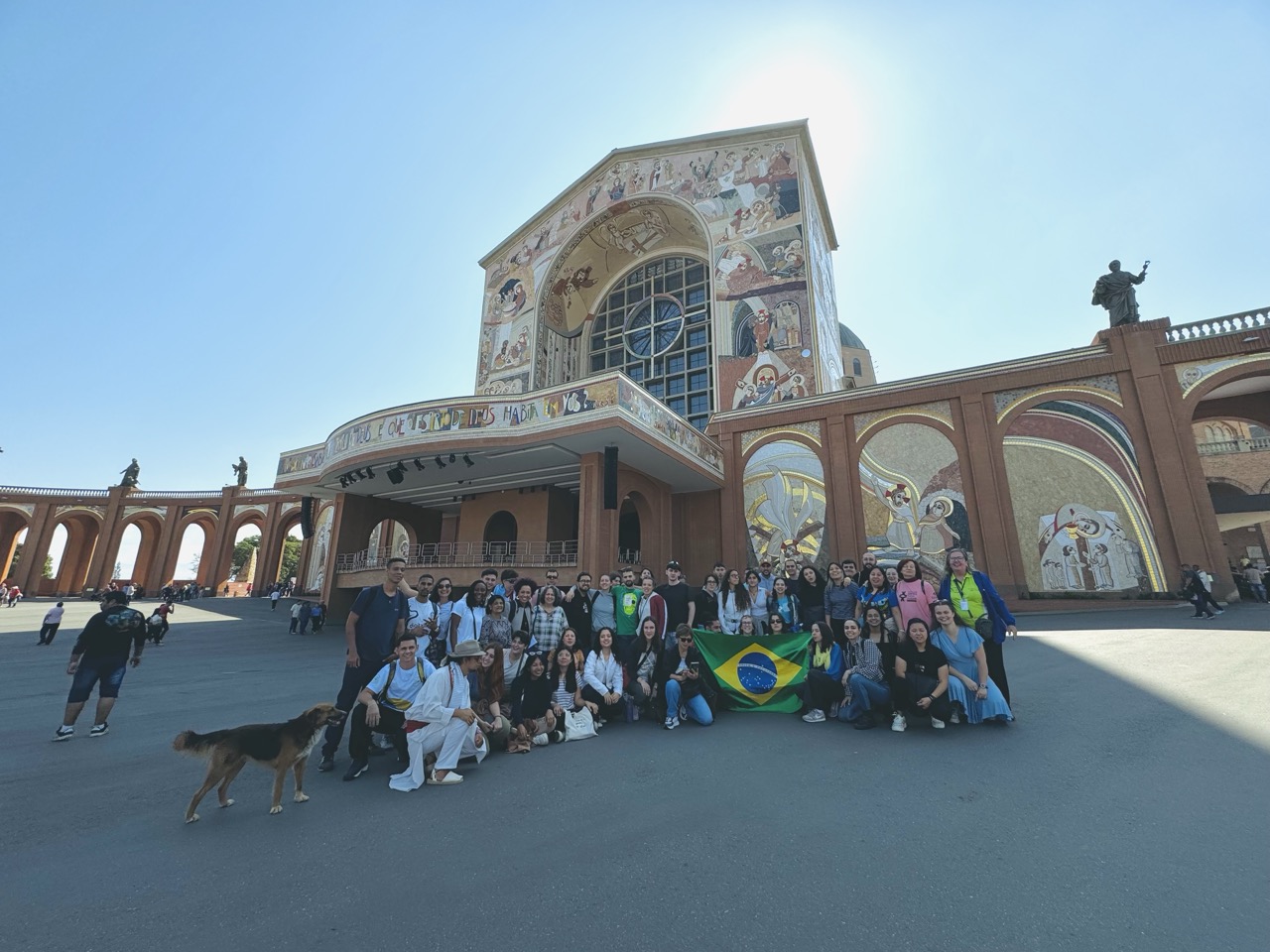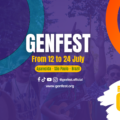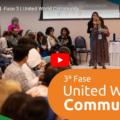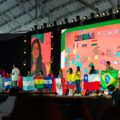
Workshop
Genfest and Gen Verde: the testimony of Anita Martinez
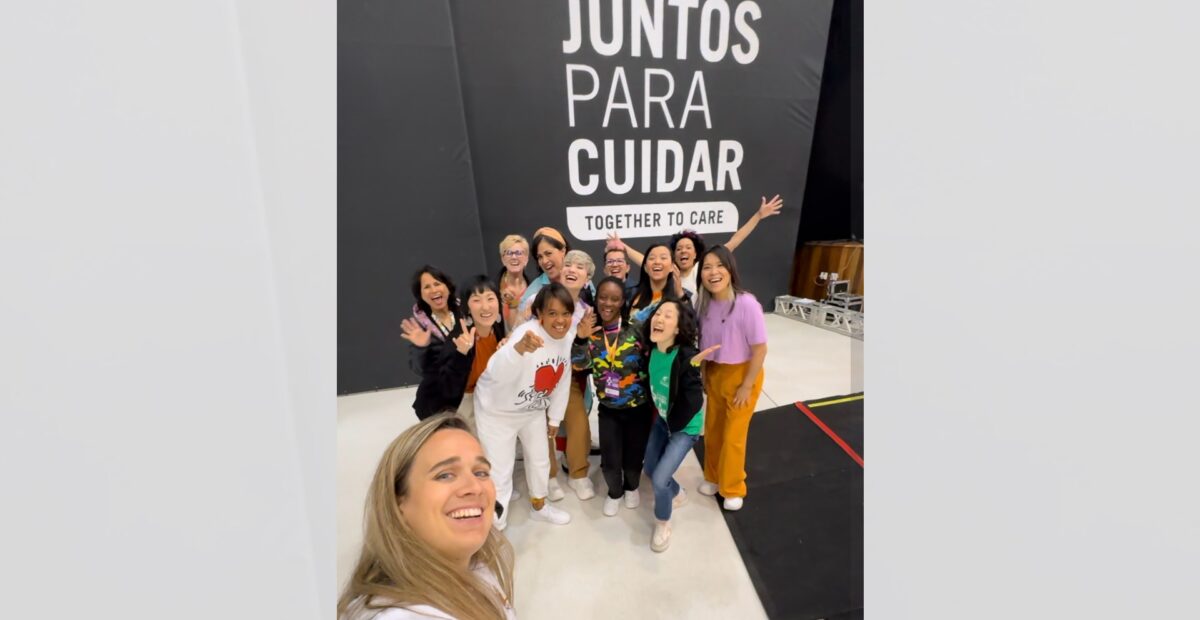
The testimony of Anita Martinez, of the Gen Verde who directly lived the Genfest, the international youth manifestation of the Focolare Movement.
The year 2024 was the year of the Genfest in Aparecida, Brazil: a great opportunity for the youth worldwide. We narrated of this with different articles and interviews on the history and present of this extraordinary event organized to continue to build unity and fraternity among the people. Thus, we couldn’t not listen to the testimonies of two of our historic collaborators of the www.unitedworldproject.org: Anita Martinez and Luísa Rodrigues.
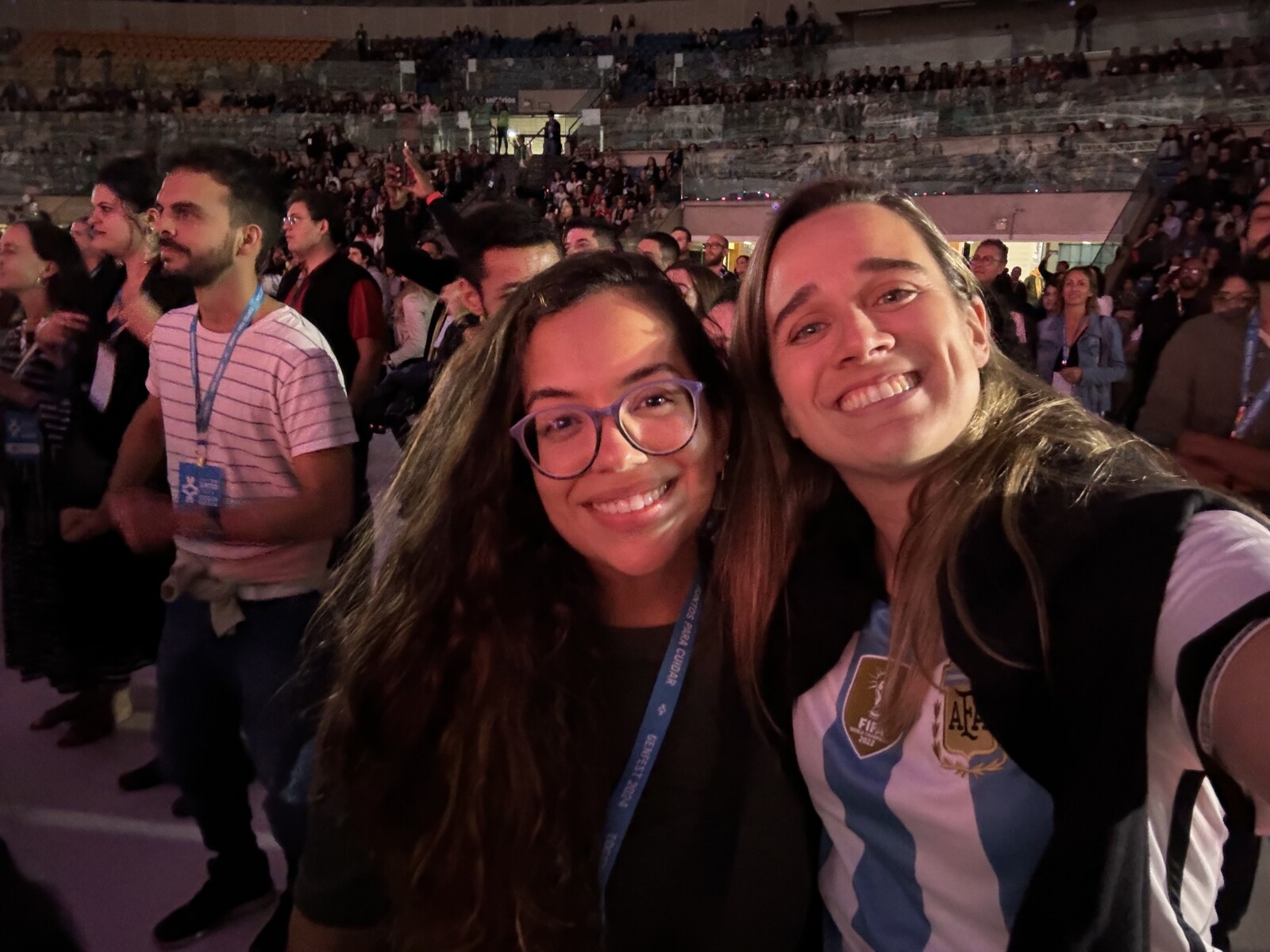
They physically lived this manifestation divided in three phases: the 1st, the 2nd, and the 3rd, and we believe that their memories and thoughts could be very useful to understand the value of this important appointment. After Luisa’s words, here are Anita’s precious ones, who talks about the work of the Gen Verde. We started from the beginning with her as well:
When did you know that you would have taken part in Brazil’s Genfest?
Working as the social media manager and for the Gen Verde communications, I knew about it as soon as it was confirmed that the band would have gone to Aparecida.
How did you do your work?
It started before reaching Brazil, while promoting the presence of the group at Aparecida, particularly the song written for the occasion, ““Start Here and Now”, with the participation of the Banda Unita (the Genfest band) and AsOne (an Italian youth band).

Then?
The Brazilian days were intense as Gen Verde conducted various activities: concerts, conferences, workshops, performances, and masses. The days were very dynamic and busy yet full of life. Of that tiredness, that’s worth feeling.
For how long did you remain in Brazil?
Almost 3 weeks: from the 12th to the 31st of July. From the 1st to the 3rd phase to carry workshops and performances at São Paulo, within different realities of the city.
So, you followed all three phases of the Genfest?
Yes, with great passion, even though my perspective was different from that of the participants. In the 1st phase we went to the Fazenda of Hope in Pedrinhas (Guaratinguetá, São Paulo): one of the first men’s fazendes. It is a therapeutic community with over 30 years of experience in the recovery of young drug addicts.
What kind of activities did you conduct?
Here the Gen Verde would conduct their trials with the dancers, singers, and musicians of the other two bands. Then, always during the 1st phase, we started an artistic workshop within a project of the Gen Verde called “Start Now Workshop Project” at Aparecida. We were together with many young people from Genfest as well as those from Fazenda of Hope who are on a path of recovery from addiction.
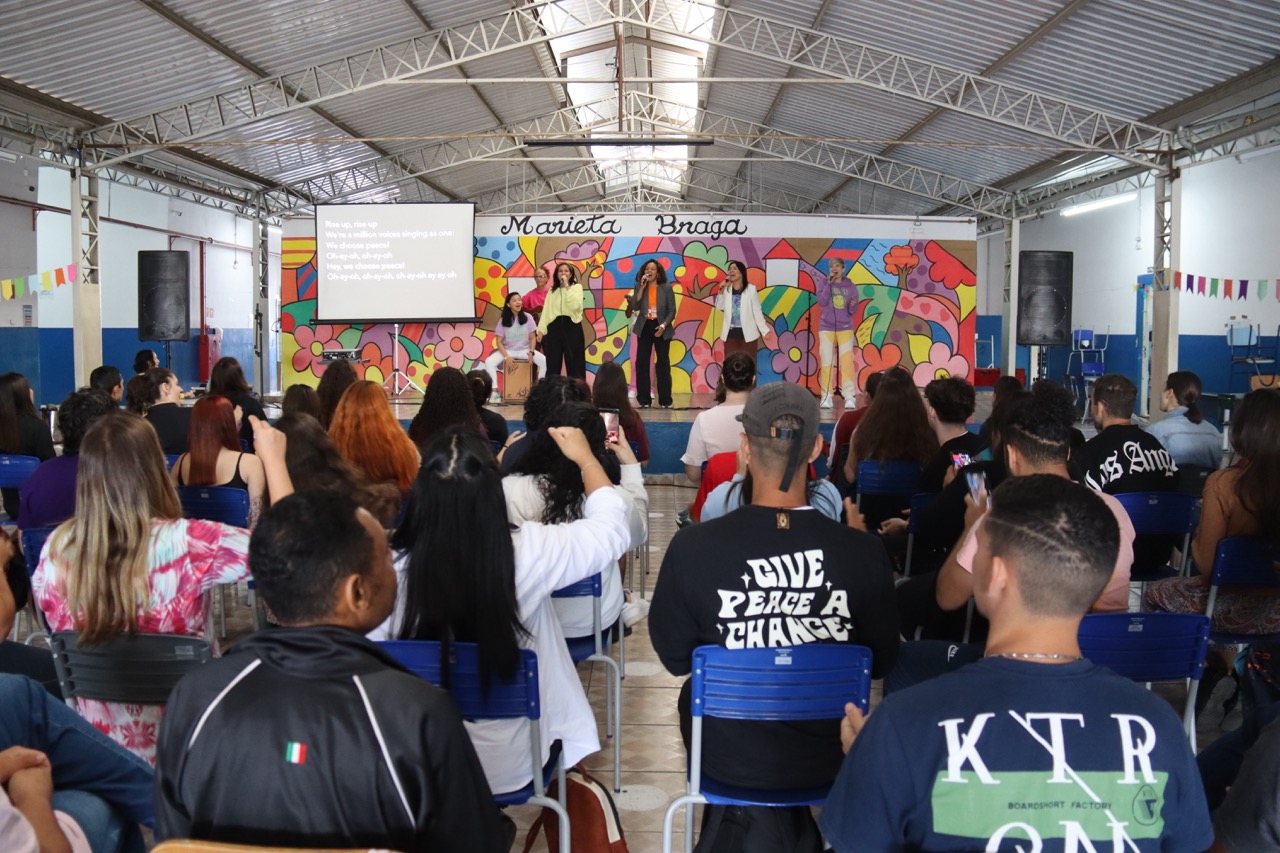
What were your feelings in this phase?
Joy in seeing so many youth working together in the dance, singing, percussion, and theater workshops. In seeing them put whatever they had to better prepare themselves for phase two, particularly for the moment in which together with the Gen Verde they would have shown their work in the main event of the Genfest. They wanted to do this to the best to share the value of the experience lived in that extraordinary period.
The 2nd phase is thus harmoniously connected with the 1st. And the 3rd?
Even in this, it was very nice admiring many youth of different realities, with different passions, putting themselves to work in the 8 communities of economy, politics, ecology, art, and communication. Each one of them put in their talents and passion to create a network and to continue to do it once they return home.
Is this the meaning of the 3rd phase?
If in the 1st phase, it was exciting seeing the youth worldwide pull up their sleeves, in the 3rd phase I was touched seeing their thoughts addressed to the future.
In what sense?
That of the Genfest does not want to be a moment in itself; that remains there but instead continues in the cities of the many youth that participated. Its meaning also lies in seeing that the United World Project fully, truly, fulfills the purpose for which it was created.
Did the Gen Verde continue its work in the 3rd phase?
It did in the art and social commitment community. It was exciting seeing how art can put in action change and facilitate social betterment. Seeing this breakthrough to youth, then, to see them convince themselves of this, is wonderful.
Which were the moments, the experiences, and the things that you carry in your heart from this experience?
The people you see, you meet. Especially the many younger brothers and sisters, the participants, the youth that are already mature and aware of what they want. Them, pulling up their sleeves for a positive change.
It is a great sign of hope and vitality.
For my job, I had to mount and post many videos. I had to do it there, in the Arena as we were always there. But I couldn’t, as I would always meet people who I hadn’t seen in a long time. Even that was a priority. I was living something unique. I slept very little, but it was all worth it.
Had you ever experienced something similar?
The days of Genfest reminded me a lot of those of WYD (World Youth Day) in Lisbon in 2023. With nearly 10,000 youth for a concert in the square. A multitude from many different countries, including youth enticed by their friends who had attended our workshops.
What do you remember of that concert?
It is difficult to explain. Speaking of this concert means speaking of the Genfest and of its meanings. For which seeing youth jumping, dancing, enjoying the concert, and singing along means knowing that behind it all is their lives as people who not only sing the songs but try to live their essence.
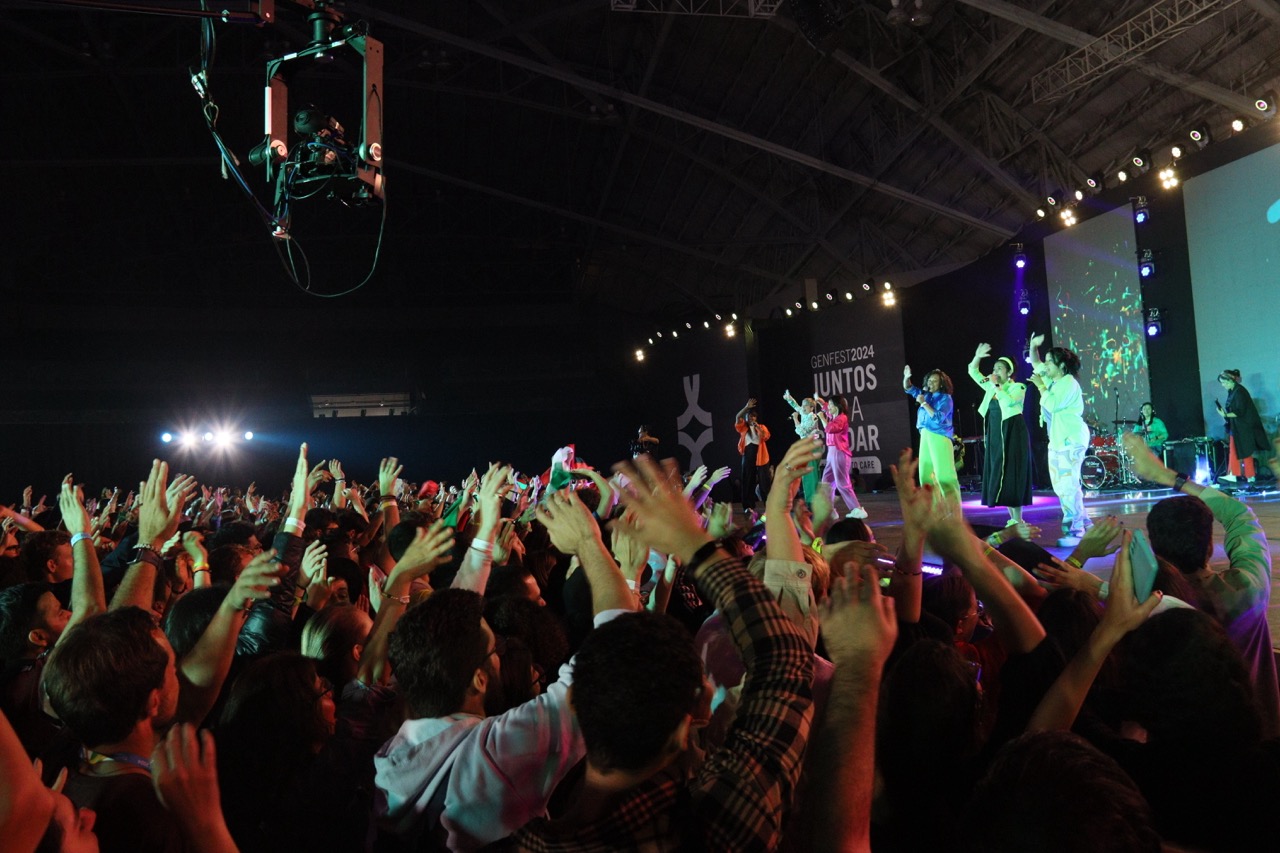
This gives us a sense of satisfaction, right?
The Gen Verde does not sing the songs only to dance to them or sing along, but to pass an important message. The music, through its beauty, is the key, the instrument to convey it. To render it more incisive and potent. While living the concert, the youth of Aparecida wanted to absorb the message contained in the various songs.
An energy twice as positive.
Difficult to explain. Unforgettable.
How would you summarize the experience of the Genfest?
Precisely through these moments that give the energy to face those of life that are difficult and tougher. They offer a profound charge, essential.
And in this historical time, we certainly experienced many of them. I am thinking first and foremost of war. There is a phrase by Margaret Karram, president of the Focolare Movement, that is important in this Genfest: “Let us not give peace until we have built peace.”
Today it is very difficult not to let so much negative news get you down and depressed. In the face of so much evil, it is not easy to think that by my actions I can bring real positive change. I happen to feel powerless. However, I am fortunate and privileged to be part of a reality, that of the Gen Verde precisely, in which we try not to think that we are alone in fighting so much difficulty. We are together, and in everything we do, both those on stage and those behind, we try to witness that the choice of peace is constant, daily.
How do you resist abatement?
By trying not to listen to the many negative voices. Not even the one that I may sometimes have within me, and that doesn’t help me move forward, that is, the voice of pessimism. And instead of trying to put myself in a motto—maybe that’s a little bit more of a path, but also the one that bears the most fruit, at least within me. Then I have the privilege of being surrounded by people who are trying to do that, and that helps me so much…not only with the songs and the workshops, of course, but especially with daily life, where we try to put this way of life into practice and help each other not to fall into negative thoughts.
Can we say that here is a relationship between art and life in the Gen Verde?
The message comes because of that, because at its basis is life. Even among ourselves. There is no difference between the message and us. There is authenticity in the words of the lyrics. Otherwise, nothing would come. Instead, this way, among so much violence and war, a positive message can be conveyed. Then, of course, good music helps, good costumes help, and so do well-made videos on social media. Because in a world of negative messages, the positive ones, and among them peace is the most urgent, we must give it in the best possible way.
To conclude, what do you carry in your heart today from your Brazilian days?
Seeing so many people with different stories, backgrounds, and cultures, putting the same commitment to bring positive change to the world. People who may be different from you but with whom you share the same vision—or, better yet, the same dream of how the world could be. And that with our diversity we can work together, in different areas, to do our part to make that vision a reality.
